Join 40,000+ sales and marketing pros who receive our weekly newsletter.
Get the most relevant, actionable digital sales and marketing insights you need to make smarter decisions faster... all in under five minutes.
Sales vs Marketing in 2024: What’s The Difference?

Oct 8, 2023

What's the difference between sales and marketing?
Marketing is any business action that creates interest or gathers information about a prospect or potential customer.
Sales is the process of moving that potential customer toward a buying decision.
In the digital age, the line between sales and marketing is more blurry than ever. Much of the customer education process that once belonged to sales is now completed on-demand by buyers accessing online materials created by marketers.
The internet has fundamentally changed the way people buy, and this upheaval has helped make fortunes for businesses that choose to stay nimble and adjust, even as the ground shifts beneath them.
Sales and marketing have been elements of business for centuries, but they are constantly evolving — perhaps at no point as rapidly as in the past 20 years.
Today, roughly 70% of a buying decision is made before a shopper talks to a salesperson. Customers self-educate by way of the content they find on the internet, whether on the company website or elsewhere. They are informed, savvy, and discerning.
Think of how it used to be. A person looking to buy a car would go to a dealership, talk to a salesperson to learn about models and prices, maybe take home some marketing materials. They would then return, perhaps two or three more times, before making a purchase.
Today, consumers not only know everything they need to about models and trim levels, they also know which dealership has the car they want, in the color they want, with the options they want. And they know all of this before they ever set foot on the lot.
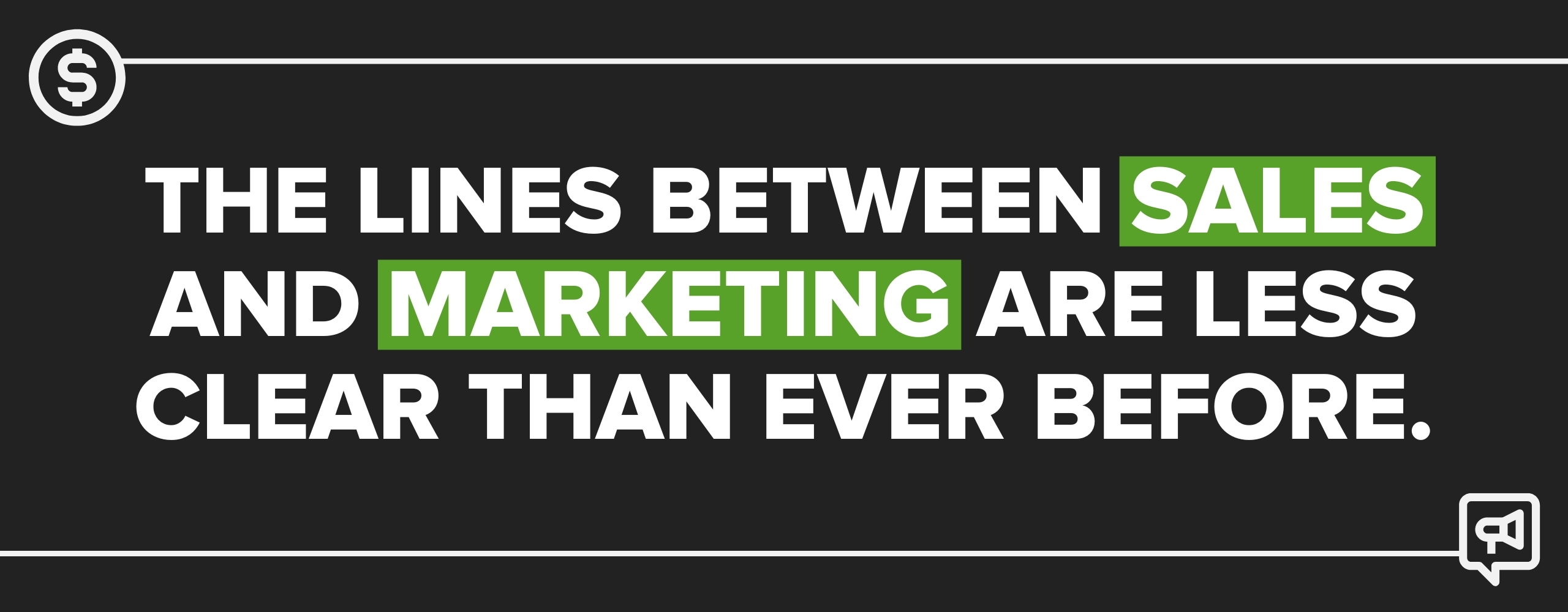
It’s gone from “what can you tell me about your available cars?” to “I want the 2024 silver CRV EX with the promotional financing offer on your website.”
Now, with the internet being the way we shop for pretty much everything, the lines between sales and marketing are less clear than ever before. Smart companies realize that their marketing strategies and sales strategies need to be closely aligned.
Below, I’ll spell out the way I see marketing and sales working together in 2024, including:
- What is sales?
- What is marketing?
- The tools that help sales and marketing succeed
- Team organization
- Sales and marketing alignment in 2024 and beyond
You’ll get a clear explanation of exactly why these two aspects of business are so closely tied together.
But first:
We need to think about sales and marketing, not sales vs. marketing
Consumers expect that any necessary information about the products and services they plan to purchase will be accessible. They want access to reviews and comparisons online, as well as information about price. These potential customers are skeptical of companies that seem to withhold information.
Who gives prospects the information they need to become customers? Typically it’s marketers who do this, by way of written content, videos, website copy, and emails. Consumers find this content a lot of ways — search engines, social media, AI, YouTube, and more.
Think back to the car lot example I shared above. Years ago, customers needed the salesperson to give them the information they needed to make a purchase. Today, the customer finds all the information she needs via website content, which is produced by marketers.
Thus, the line between sales and marketing has become blurry. If the salesperson once was responsible for educating the prospect, which is now done via marketing, then where does the line exist between one and the other?
What is marketing?
Simply put, marketing is any business action that creates interest or gathers knowledge about a potential buyer or target customer for a particular service or product.
In a more traditional model from previous generations, a business’s marketing strategy involved creating advertisements and buying media space to get those ads in front of consumers.

In the world of digital marketing, this means creating content that informs website visitors about how your company’s products or services can help with their problems. These customers search for this content and come to your website to read it. Hence the term inbound marketing.
Digital marketing can still focus on brand identity and product launches, but educational content is best for building trust with your target audience.
They Ask, You Answer
As the statistics mentioned above attest, marketing is taking responsibility for an ever-increasing portion of the sales process. Marketing teams are educating prospects so that they can quickly and smoothly move through the buying process without relying on salespeople in the way they did in the past.
At IMPACT, we advise our clients to focus all their marketing efforts on answering customer questions. We’ve found that this strategy attracts new customers by building trust. When visitors see that you’ve got nothing to hide, they’re less guarded and begin to form a relationship with your brand. Then, when they’re ready to move forward, they can move quickly through the sales process because their questions have been answered.
We call this approach They Ask, You Answer.
If businesses are properly integrating a They Ask, You Answer methodology, the biggest questions in any prospect’s mind will be already answered on the company website — and this is all done by the marketing team.
Now, in some businesses, there is no sales department, and commerce relies solely on marketing. For example, think of Amazon. There is no sales team. No one is helping you make your purchasing decision. Instead, you rely on customer reviews and detailed product descriptions.
I believe this will become increasingly common in the future. After all, people are now buying pretty much anything over their phone or computer. In fact, there are some statistics that suggest buyers don’t want to talk to sales representatives at all.
So, where does that leave your sales team?
What is sales?
Traditionally, sales took over once a business knew a prospect existed. If an advertisement got someone into a store, a salesperson took it from there.
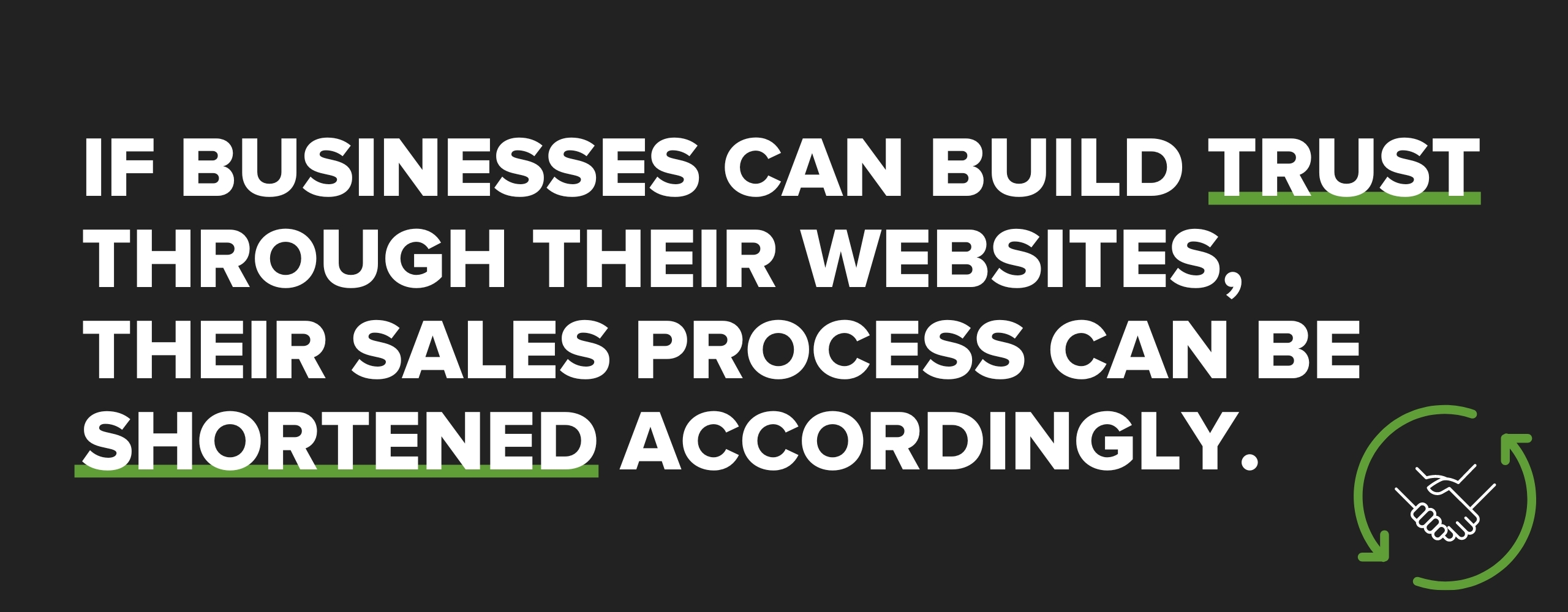
At companies practicing inbound and content marketing, the salespeople still function in a similar way, but much of the heavy lifting is done by content on the company’s website. By the time a prospect is ready to talk to sales, they’ve accessed a great deal of information. If the content is effective, they have also begun to trust the business.
Sales can’t happen without trust
I believe that trust is the currency of all business. Trust is vital, but it’s also fragile, and slow to develop. If businesses can begin to cultivate trust by way of their websites, the sales process can be shortened accordingly.
Every good experience builds a buyer’s trust, but a single negative experience can undo all that work almost immediately.
Good salespeople are crucial to this process. As prospects get closer to a purchase, the sales team is there at the most critical time.
Good sales reps are able to clearly, confidently, and efficiently help prospects become customers. At a point when customers are handing over money, it’s important that sales reps are there to operate with humanity and purpose.
Sales teams need to see themselves as educators
We recommend that our clients build their sales strategy around education. Every sales team should focus on answering prospects’ questions instead of pressuring them through a sale.
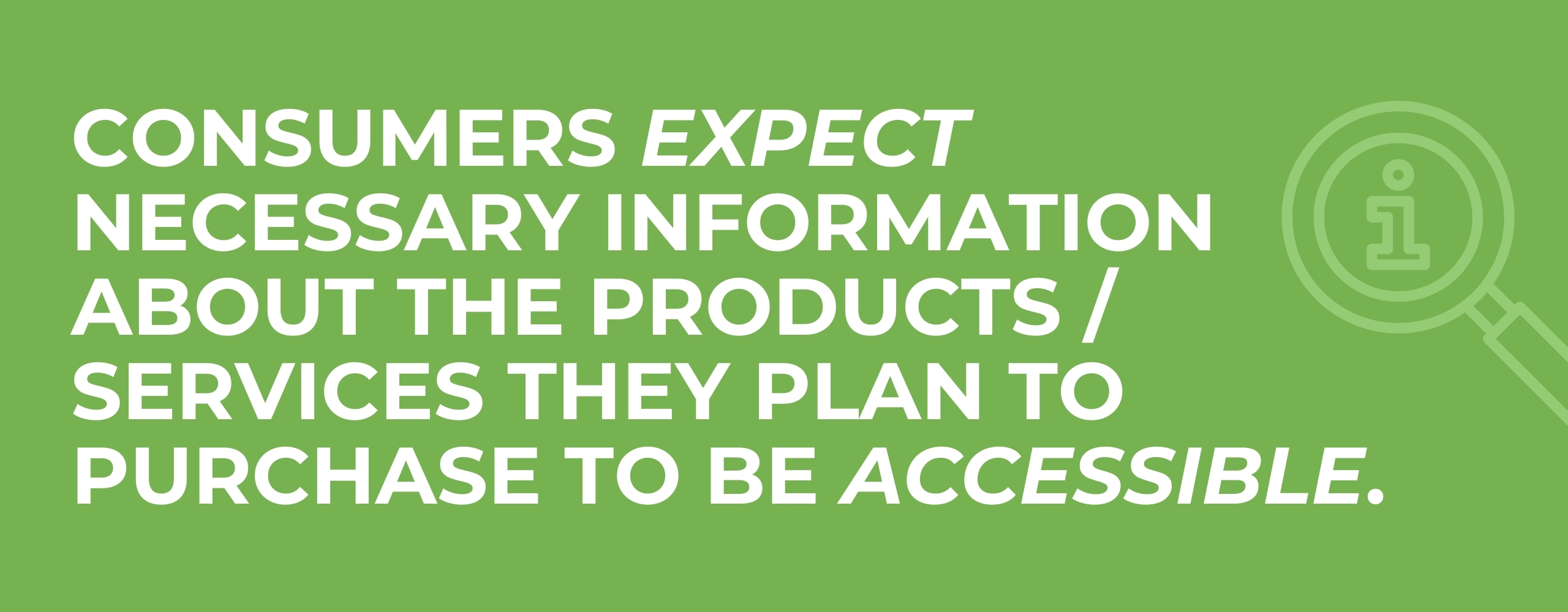
An educator’s goal is helping people understand. If your sales team approaches every prospect with this mindset, bad-fit prospects will naturally opt out of the sales process, improving close rates and diminishing the number of unhappy future customers.
The tools that help sales and marketing succeed
To be successful in the digital age, companies rely on software to help them to stay organized and efficient. For sales teams, this is a customer relationship management system, or CRM. This keeps track of all prospects, customers, and clients, with details about contacts, deals, and companies — and it allows for robust analysis and collaboration.
For marketing departments, the most important software asset is a marketing automation tool. This sends and tracks emails and other communications, provides analytical information, and automates tasks associated with marketing campaigns.
Considering how essential sales and marketing alignment is, it amazes me that so many sales and marketing teams use programs that don’t integrate well with each other.
At IMPACT, we use HubSpot, which is both an automation system and a CRM. And we can’t recommend it highly enough. The fact that HubSpot is used by our sales and marketing teams fosters alignment between the squads.
When a prospect has to be handed off from marketing to sales, an integrated software system enables a smooth transition.
Team organization
Traditionally, businesses have seen sales as the recipe for growth. When a company wants to grow, it looks to hire more sales reps. When in financial trouble, it will let go of marketers before downsizing sales.
In conventional thinking, sales equals revenue, and marketing is an expense.
This is an outdated approach.
There is a lingering overestimation of sales teams’ influence on revenue. As a result, most companies employ 10 sales reps for every marketer on staff. At some companies, it’s even more. I’ve seen instances where there are 20 salespeople for every marketer.
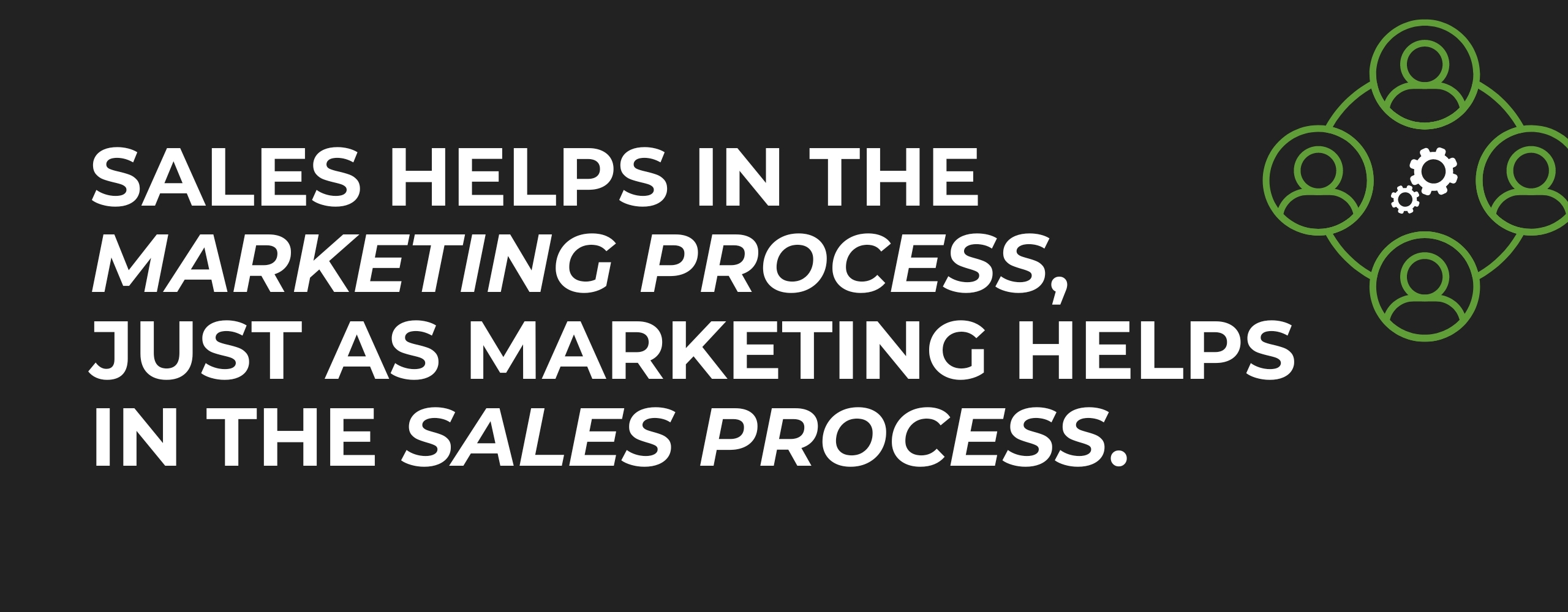
Some companies don’t have any marketers on staff, choosing instead to outsource marketing efforts to an agency.
Think about the reverse. Would a company consider outsourcing its sales to an outside agency? Of course not. The very notion seems absurd. Outsourcing of marketing is, in my mind, equally absurd.
Instead, some forward-thinking companies are opting for a blended revenue team, which eliminates the siloing that has divided sales and marketing for so long. With shared meeting time and overlapping KPIs, blended teams can focus on providing customers a seamless experience: relevant content, appropriate email marketing, and an education-based buying experience.
Sales and marketing alignment in 2024
I believe it is detrimental to businesses to continue to see marketing as an expense.
Rather, both sales and marketing should be seen as teams that bring in revenue. Think about it: If marketing is now responsible for a large part of what once fell under sales’ purview — and we see revenue coming from sales — then marketing, too, is driving revenue.
Times change. So, too, must organizations.
Going forward, marketing teams should no longer be seen as an expense, and they should take responsibility for expected revenue, proving their ROI in the process.
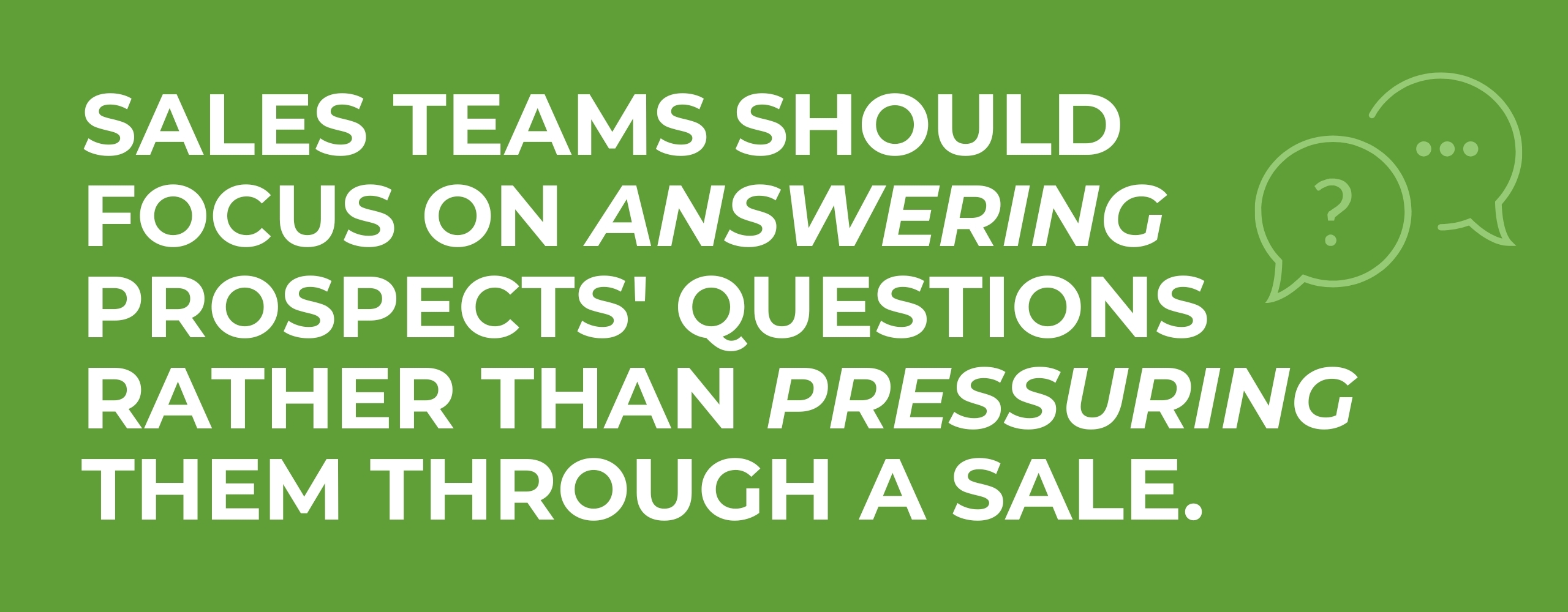
Sales teams should avail themselves to their marketing colleagues and share their expertise.
Sales reps have intimate knowledge of the questions prospects ask during the buying process. This knowledge should yield content that further shortens the sales cycle.
This way, sales helps in the marketing process, just as marketing has come to help in the sales process. Through collaborative effort, the teams get better and the company becomes more efficient, more transparent, and more successful.
A path forward
I once had a conversation with over 100 representatives from a major company. All of the key leaders were there, and I was speaking to them about the future of sales and marketing. I recommended hiring decisions I thought they should make, and the whole room seemed to agree with me.
But they said, “Marcus, we don’t think the CFO is going to go for it.” It turns out the CFO was in the room with us. I asked her directly, would you be willing to invest more fully in marketing, to align your teams, to commit to being transparent and educational?
She said, “You know how it is. Seeing is believing. I need to see it work before I’d fully invest.”
To me, that was like asking a farmer to see produce while not being willing to invest in seed. You can’t see the crop harvested if you’re unable to plant the seed.
To be successful in the future, companies need to take a leap of faith. Great success can happen — big things can grow — but not until you plant the seed and invest in thinking differently.
The future: A blended approach
Let’s say you want to buy a new refrigerator. You go online to a trusted site and it asks you a few questions right off the bat. What size are you looking for? Which brand? What’s your budget? What's your kitchen decor? How soon do you need it?
Now, traditionally, these are the exact same questions that were asked by salespeople on a showroom floor.
Here, though, the answers lead you to different web pages designed specifically for the options you selected. All of the information is served up to you on-demand, in the comfort of your home, at your own pace. You’re in complete control.
You progress until you reach a point where the site can make a recommendation and you can make a decision.
Now, is that a sales or a marketing process?
It’s a new kind of sales experience designed by marketers to cater to a modern buyer.
In 2024 and beyond, it will be harder and harder to distinguish between sales and marketing.
Smart companies will organize their teams accordingly, with aligned professionals who recognize the changing notion of modern business.


Register for IMPACT Live in Hartford CT, October 14-16!